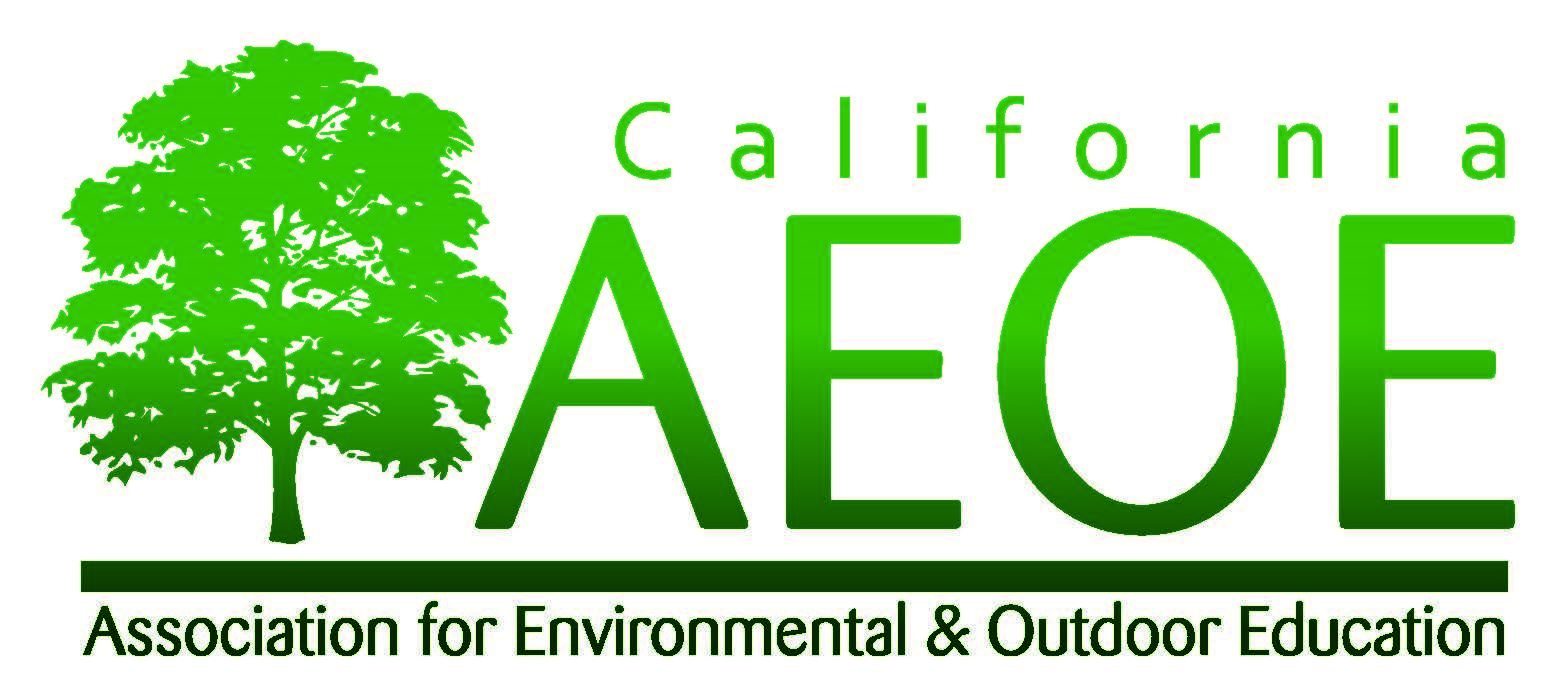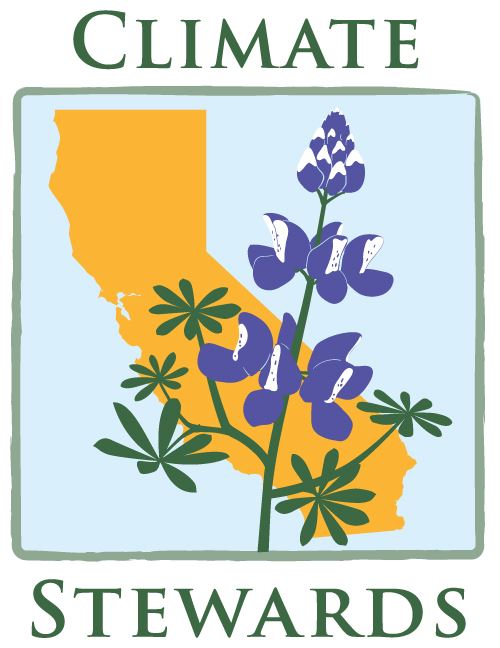| Association for Environmental & Outdoor education |
AEOE strengthens environmental education in California by connecting providers, building professional expertise, and championing environmental literacy and outdoor learning.
environmental educator certification program
OVERVIEW
The Environmental Educator Certification Program (EECP) recognizes experienced environmental educators for their skills and contributions to the field and draws together stewards and educators of the environment into a structured and effective initiative. The EECP is an 11-month program running August through June in which environmental educators demonstrate their competency through group discussion, individual reflection, submission of assignments, and the completion and presentation of a community action project. Through participation in the certification program, educators expand their professional networks, make important connections across the state, and better understand the full spectrum of environmental education careers available. EECP is conducted online over Zoom and utilizes Canvas as its learning management platform.
Certification is a public declaration that a certain individual meets a stringent level of requirements and has a specific set of skills. The benefit of an established certification process extends to the individual, the public, and the field itself. Having the EECP enhances the legitimacy of the profession by building a uniform foundation in effectively teaching about the environment. Advance your career and get certified as an environmental educator!
If you are a supervisor and are interested in learning more about the benefits of sponsoring your staff to enroll in the program or want to know how you can support their participation, click here.
Click here to see the full list of environmental educators certified in California!
EECP Info Sessions & Community Action Project Presentations
Are you interested in becoming certified as an environmental educator but aren't sure if this is the right next step for you? Click here to access the recording of the info session offered in May.
APPLICATIONS
EECP applications for the 2025-2026 program closed in July. Applications for the 2026-2027 program will open in May.
Complete applications include the following:
(1) completed application form, and
(2) payment of the non-refundable $25 application fee
Applications are typically due every year on June 30. Applicants are notified in early July of the status of their application. If you would like to see the application form questions ahead of time to draft your responses, click here and make a copy or download the document.
Interest form: Click here if you would like to be added to our interest form for next year's program.
Program Fee
In addition to the $25 application fee, accepted program participants are responsible for the full program fee, chosen voluntarily based on need: $400 at the assisted rate, $450 at the standard rate, or $500 at the contributor rate (which helps cover the costs of those needing assistance). One year of complimentary individual AEOE membership is included.
Program Scholarships
For the 2025-2026 Environmental Educator Certification Program, ten partial scholarships (tuition assistance offered at 50% of the standard rate) will be offered. At least half of the scholarships are specifically designated for individuals that identify as Black, Indigenous, or a Person of Color (BIPOC) and/or LGBTQIA+ to increase access and decrease barriers to career advancement for individuals that identify as a member of communities that have historically and systemically been marginalized in the field of Environmental Education. If you would like to contribute to the scholarship fund, click here to donate.
The scholarship priority application is now closed and all funds have been allocated.
ADDITIONAL INFORMATION
The environmentally literate Californian The air, water, land, and organisms of this planet make human life possible. It is imperative that society works toward growing a citizenry of environmentally literate individuals. Californians who are thoughtful, critical, and interested in learning about nature and how it functions can make informed decisions that improve the quality of life in their communities. They are able to assess values, evaluate issues, predict consequences, and make positive changes in the world around them. An environmentally literate person understands ecological systems and how natural processes are interconnected and actively works for sustainable outcomes, considering the impact of their actions today and in the future, and expresses themselves as citizens of their community, country, and planet through voting, civic action, service, and conscientious choices. A world full of environmentally literate individuals can ultimately lead to healthy communities and societies committed to sustainable habits fueled by creative alternatives and a common respect for the resources that sustain us. In the high tech, fast-paced world in which we live, the role of the environmental educator is increasingly important. The role of an environmental educator is to support the development of environmentally literate citizens. Environmental educators do not tell their audience what to think, but rather guide them in understanding the world around them. They reveal the wonders of this planet and the processes behind it to their students. Environmental educators share the joy of nature and humanity’s place in it. An environmental educator demonstrates place-based best practices in teaching about the environment in an inclusive, experiential, and engaging manner. While we commend and celebrate environmental education in all formats, AEOE believes that environmental education is best optimized in outdoor settings, where students can experience natural systems firsthand. This program has been designed to reflect our commitment to outdoor learning. Who should get certified? Anyone who currently teaches about the environment could benefit from becoming a certified environmental educator. You may consider yourself a formal, non-formal, or informal educator, working in public or private sectors of education. Examples of professions that may be interested in the certification include, but are not limited to, PreK-12th grade school teachers, nature center employees, state park interpreters, naturalists, community educators, college professors, and instructors at residential environmental or outdoor science schools. This program is designed for educators with some experience; that is, the EECP should not be your first foray into environmental education, nor do we expect that you are a seasoned veteran. Program participants will need to have completed at least two years of relevant teaching experience prior to starting the program and are eager to enhance their professional experience and refine their craft. The process of certification allows the individual environmental educator to further their understanding of key environmental topics and improve their instructional practices. As candidates go through the certification process, you will find opportunities for personal growth and learning while building professional contacts through shared experiences. Reflecting on your practice, stretching into new comfort zones, learning new skills, developing interdisciplinary thinking, and learning with others will support you in becoming a better educator in whatever role you hold or aspire to achieve. As part of a group of motivated individuals, networking with other environmental educators around the state can also lead to new and exciting employment opportunities. Upon certification, candidates will be recognized for their accomplishments and hence, will experience increased marketability. Certified environmental educators will be viewed as rising leaders in the profession and will be better equipped to make a positive impact in their communities. Requirements for Certification To obtain EE certification, candidates must successfully participate in all program elements and demonstrate competency in the themes outlined below, in addition to completion of a Community Action Project. Candidate criteria In order to be accepted into the program, EECP candidates must meet the following criteria:
Prior to beginning the EECP program, candidates must:
If accepted, candidates must:
Program Elements
Content: The EECP content is based on NAAEE’s Guidelines for Excellence, with supplementary components based on California’s ecology and the diverse needs of our state. Professional Learning Units AEOE partners with University of San Diego to offer up to 9 graduate extension credits upon receipt of certification. These units must be purchased separately. Description of a Certified Environmental Educator in California While environmental educators come with a variety of backgrounds and work in a variety of settings, there is a core set of characteristics that all environmental educators should possess. The requirements of the certification program are designed to assess and ensure that all candidates demonstrate aptitude in the following areas:
The characteristics of a certified environmental educator were formulated by the EECP Steering Committee and derived in part from the Core Competencies published by the North American Association for Environmental Education (NAAEE). | PROGRAM TESTIMONIALS “While enrolled in AEOE’s Environmental Educator Certification Program, our staff developed the skills, experience, and self-confidence needed to use their own voice and creative ideas to help us reach new audiences and bring fresh perspectives to our curriculum. As a small organization this has been an incredibly helpful and cost-effective way to train our staff in contemporary and relevant naturalist techniques and pedagogy.” – EECP Participant Supervisor "I learned so much that can be applied to my work and was able to build long lasting networks that I will continue to build." – EECP Participant "The personalized, independent, self-designed project was a HUGE part of my positive experience and I think it helps elevate this certificate program to the point of allowing people to harness momentum to improve their respective work places, so the ripple effect is amazing to think about. I also want to acknowledge the work done to make this an equitable experience and encourage folks to continue cultivating patience and grace while striving to always move the cultural norm, little by little." – EECP Participant "A lot of the content was so geared toward personal growth as well as professional growth, that I felt kind of blown away by how useful and inspiring I found so much of the material! ... Overall, I feel empowered to be more of a leader in my work and now have a network of people with whom I feel I can easily collaborate." – EECP Participant MENTORS One of the unique components of the program is the small-group mentorship offered to all participants. At the beginning of the program, EECP participants are placed in small groups with a mentor who serves as a leader in the field of EE in California. Participants are involved in the selection process and are paired with a leader who has experiences, knowledge, and connections that will benefit them in their careers. Mentors are carefully selected to include leaders with a range of EE settings, geographic dispersement, and multiple identities (gender, race, ethnicity, etc.). They are leaders who demonstrate professionalism, integrity, and accessibility and strive to be inclusive, encouraging, and respectful of EECP candidates. Mentors for the 2025-2026 year include:
Many thanks to the following mentors for supporting the program in past years:
*Past EECP Participant If you are interested in serving as a mentor, click here for more information. Please contact AEOE's Executive Director Estrella Risinger director@aeoe.org with any questions. EECP Steering Committee This program would not be possible without the support of the EECP Steering Committee, comprised of individuals from a variety of EE settings who worked for more than two years to develop the program's content and structure. Thank you to the following individuals for offering their time and expertise:
|
Accreditation

AEOE's Environmental Educator Certification Program is accredited by the North American Association for Environmental Education.
Project Partners
Many thanks to our project partners below for continuing to offer high-quality online trainings and resources for EECP participants.



